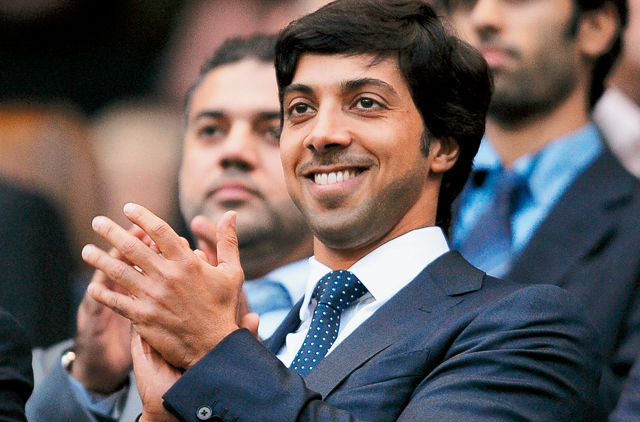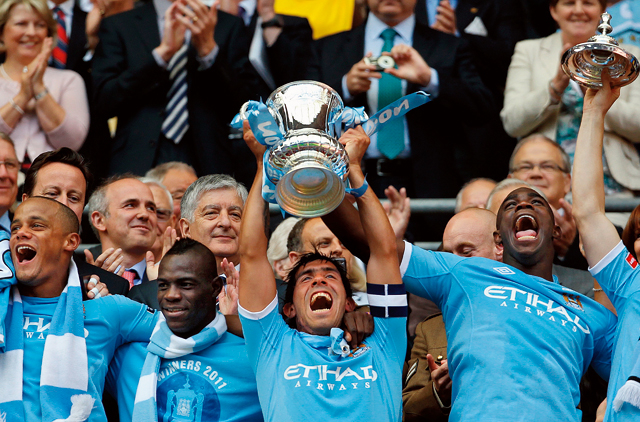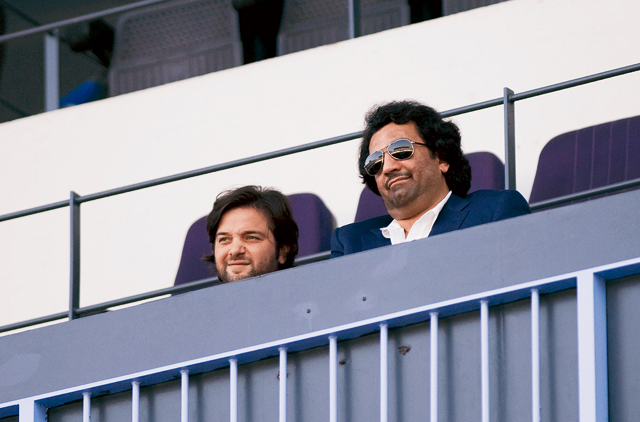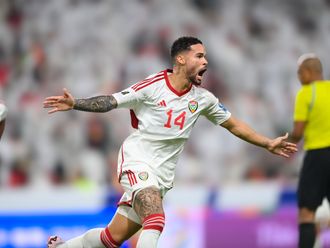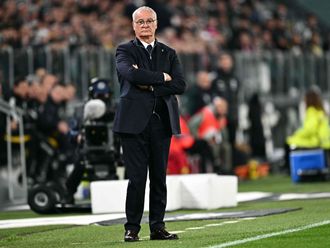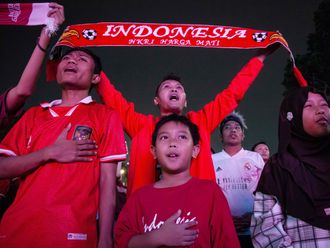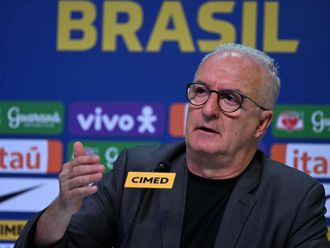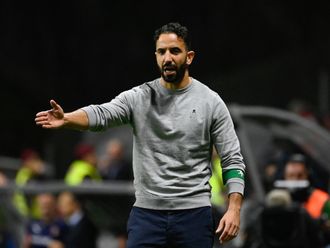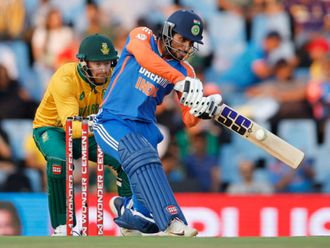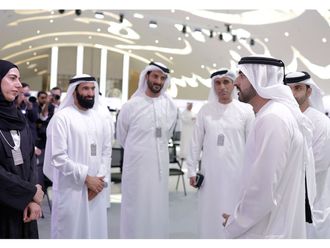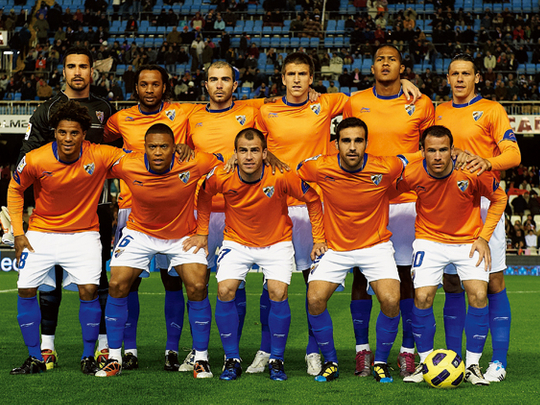
The moment Qatar was awarded the 2022 World Cup, sport changed forever. The Middle East, a region misunderstood by the West following years of political friction, has a unique opportunity to redress the fallacies and emerge from the wilderness - and the vehicle it is using is football.
The quest for hearts and minds is being taken to Europe - where Gulf cash is transforming the face of the game.
Investment from the Gulf has changed the fortunes of clubs across Europe, including Malaga, Racing Santander, Getafe, Paris Saint-Germain and, most famously, Manchester City. The flow of cash to clubs with little or no history of success is turning the transfer market on its head.
City recently announced the strengthening of their partnershipwith Etihad Airways, which resulted ina £400-million (Dh2.4-billion) sponsorship deal that includes the renaming of their stadium, solidifying the growing association between the Middle East and the Premier League.
Emirates airlines has become one of the world's leading corporate sponsors of sports events over the past 20 years and, with Qatar securing the hosting of the World Cup, it raises the question: Is the future of football - and sport as a whole - in the hands of a few Middle Eastern billionaires? And if so, is that a problem?
Malaga's Qatari owner Abdullah Al Thani has stated he sees a growing association between the Middle East and Europe and, given many clubs' unquenchable thirst to attract the biggest names and pay the biggest wages, it'sa link that has seen many clubs become dependent on their sugar daddies.
Malaga and Racing Santander have been injected with enough cash in a few short months to make them believe they can become the Spanish Manchester City -and the inflated bids for Wesley Sneijder and Javier Pastore this year illustrate this.
While takeovers of obscure clubs such as Russia's FC Anzhi Makhachkala by Suleyman Kerimov, an investor billionaire and, according to his Wikipedia page, "an active philanthropist", may attract a few ageing stars seeking a final pay cheque, the money flowing from the Gulf to the established leagues could eventually cause a schism.
The stratospheric level of investment in Manchester City by the Abu Dhabi United Group in 2008 changed the football landscape. The takeover and recent commercial deal, which includes the creation of an 80-acre ‘Etihad Campus' opposite the stadium, which will includea 7,000-seat stadium for youth matches, is believed to be the biggest sponsorship deal in football history.
For decades the poor relations to their local rivals United, City have attractedthe likes of Carlos Tevez, David Silvaand, for a brief stint, Robinho. Provided they can maintain their success where everything seems to matter least - onthe field - their renewed participation in the Champions League will prove to bea game changer.
But there may be pitfalls for clubs such as City, given that Uefa president Michel Platini believes they could fall foul of the ‘related party' aspect.
Unexpected alignment
Arsenal's deal with Emirates is worth £100m and the airline pioneered several partnerships between the Middle East and many of the world's major teams and sporting events. And, in doing so, have aligned sport with a region of the worldnot internationally renowned for its athletic achievements.
Emirates are sponsoring the 2011 Rugby World Cup and have long-term associations with the Ryder Cup as well as dozens of major horse-racing, tennis and boating events.
Emirates also sponsors the officials in all cricket Test matches and one-day internationals and are the only airline that officially partner the Fifa World Cup.
In addition, Emirates have their name across the shirts of AC Milan, Hamburg, Olympiakos, Paris Saint-Germain and, of course, Arsenal. Not bad for a company that is a day younger than Wayne Rooney.
Qatar Airways also unveiled their first major commercial sports deal earlier this year as the official airline for the 2011 Tour de France. Even FC Barcelona have got in on the act, marginalising their charity-only deal with Unicef to allow Qatar Foundation pride of place on their shirt - at a cost of €150 million (Dh794 million).
While the likes of Mastercard, Heineken and Coca-Cola remain major players in sports sponsorship in Europe, major Middle Eastern brands are tightening their grip on the sports market - and will continue to do so until Qatar 2022 has been and gone. Interestingly, City's deal with Etihad and Arsenal's contract with Emirates each run until 2021, the eve of Qatar's big year.
While the sponsorship of the Thailand Open golf tournament may get the CEOs of Emirates excited, it is the sweeping takeovers of football clubs that continue to allow the Middle East to flex its muscles. The most compelling of these takeovers is in France, where revolution is in the air.
Unlike London, Rome or Madrid, France's capital has just one major team: Paris Saint-Germain (PSG). The problem is, they've not been that great; but according to the new owners that's irrelevant.
"We wanted to acquire PSG because it's the only club in France's capital city. It's a big club with a history and super fans," Nasser Al Khelaifi said on the day he was handed the keys to Parc des Princes stadium.
"Acquiring PSG is a dream. All together, us, the management, the fans, the players, we will do everything so that the dream becomes reality," Al Khelaifi added.
The dream, whether it's a rags-to-riches fairytale or a desire to create a city rivalry, is irreverently utopian. The concern since the demise of Portsmouth, who were playing AC Milan in Europe in 2008 before being plunged into administration barely two years later, is that foreign owners swan in and take their money out of the club as quickly as it went in.
Loss of identity
Platini, in whom Wenger has confidence in enforcing financial fairness, is concerned that deals such as the PSG takeover may emasculate the tribalism that gives teams their cultural identity.
"I'm not a fan. Football has been a big adventure based on identity," Platini said. "At the time, when there was Paris against Marseille, it was the people of Paris against the people of Marseille. Today the Qataris are coming, great, but I'm not a big fan. Today they are here but when they leave, the club will be bankrupt," he added.
Of course those benefiting from the change in ownership at PSG, who have just recruited former Inter Milan coach Leonardo as sporting director to coax some star quality to Paris, are convinced that the opportunity for greatness is in their hands.
It would appear Manchester City is the blueprint, and PSG are out to replicate it.
"It opens up possibilities," Robin Leproux, the PSG president, said. "It's the best thing that can happen to PSG. It's excellent news to have this sound financial partner at a time when we know that French football is in financial difficulty."
Indeed, French football has been unable to reap the rewards that the Premiership has after it was bankrolled by Rupert Murdoch some 20 years ago, ushering in an unprecedented era of lucrative TV deals.
Business experts continue to insist that English football is teetering on the brink of financial credibility and, while the Premier League has gradually become accustomed to the influx of American owners at many of its top clubs, the takeovers by the billionaires from the Gulf seem to herald a new era that even the Americans can't compete with. But the United States is not in the business of spreading its wings; it's been there and done that.
The Gulf nations, in particular Qatar, are on a quest to show the rest of the world that they mean business; because winning the World Cup bid appears not to have convinced the critics.
"We will not lie, our budget was significantly higher than any of the other bids," Qatar 2022 chief executive Hassan Al Thawadi admitted in a recent interview with the BBC. "If you take into consideration what we had to spend it on. We started behind everyone else, we had to win hearts and minds."
It would seem that Qatar, along with their Gulf neighbours Bahrain and the United Arab Emirates, are taking that fight for "hearts and minds" to the people they are trying to win over - Europe's football fraternity.
China, Brazil, Russia and India may be the world's fastest developing economies but, as far as sport is concerned, the Gulf nations are dragging it - football in particular - kicking and screaming all the way to Qatar 2022.


